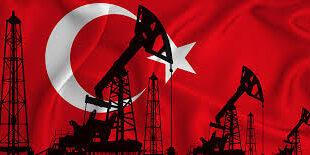Amid tepid demand and high spot prices, China is expected to see an unprecedented slump in its liquefied natural gas imports this year, ceding the world’s top LNG importer status back to Japan.
Chinese buyers are expected to largely stay away from spot purchases on the LNG market as inventories ahead of the winter are adequate, and demand is lackluster amid snap Covid lockdowns that have slowed industrial demand and economic growth.
China has been reselling LNG cargoes to Europe this summer, as its own demand is not what it used to be in recent years. Despite an expected halt to these re-sales as winter approaches, China will still import lower volumes of LNG this year than in 2021.
Chinese sales of LNG have been a relief to the European market so far in 2022. But as China now moves to cater to its own energy security this winter, Europe’s LNG supply could dwindle just ahead of the winter heating season.
Despite the potential tightening of the LNG market with China keeping supply to itself, Beijing’s overall weak LNG imports this year could mean that there would be more spot LNG cargoes for Europe if Europe has the capacity to take them in.
Last year, China beat Japan to become—for the first time—the world’s largest importer of LNG. This year, China is set to give the ‘top importer’ title back to Japan.
Chinese imports of LNG are set for the largest-ever annual plunge since China started importing the super-chilled fuel in 2006, according to Wood Mackenzie. The consultancy expects China’s LNG imports to drop to 69 million tons this year, which would be an unprecedented 14% annual decline—the steepest drop since China first imported LNG back in 2006.
Weakening gas demand in China, increased domestic production of natural gas, policies to support coal as the “energy security” tool, and of course, the much higher spot LNG prices this year have all combined to reduce Chinese purchases of LNG so far in 2022.
“Chinese buyers have minimised their exposure to costly spot LNG. Spot purchases were muted, and reportedly, some Chinese players resold cargoes into the European market,” Wood Mackenzie research director Miaoru Huang said.
Other analysts concur and say that China will mostly stay away from spot LNG purchases this winter.
Mild residential demand is set to limit spot LNG purchases during the winter, analysts at Independent Commodity Intelligence Service (ICIS) said at the end of August. ICIS expects China’s LNG winter demand, from November 2022 to February 2023, to decline by 1.5% compared to the same period last year. In the first half of 2022, Chinese gas demand fell year-on-year for the first time in over a decade, ICIS noted.
“Given hitherto sluggish demand, questions have been raised as to whether consumption will revive in the coming winter heating period,” ICIS said.
Earlier this month, ICIS’ lead Asia gas and LNG analyst Alex Siow told Reuters, “China basically stopping bidding for spot is great because (there is) one less party to fight for cargo.”
The potential absence of China from the spot LNG market this winter could be a welcome relief for Europe’s gas and energy crisis, as a lack of intense Chinese buying would leave more supply available to head to Europe.
The EU and the UK, for their part, are preparing for the worst this winter and are warning of rationing and rolling blackouts, although they have done as much as possible to fill up gas storage sites and haul more gas from sources other than Russia. Still, winter weather in Europe and north Asia will be the determining factor in how fast European gas in storage would be depleted, so Europe hopes for the best and prays for a milder winter.
 Iran Energy News Oil, Gas, Petrochemical and Energy Field Specialized Channel
Iran Energy News Oil, Gas, Petrochemical and Energy Field Specialized Channel




